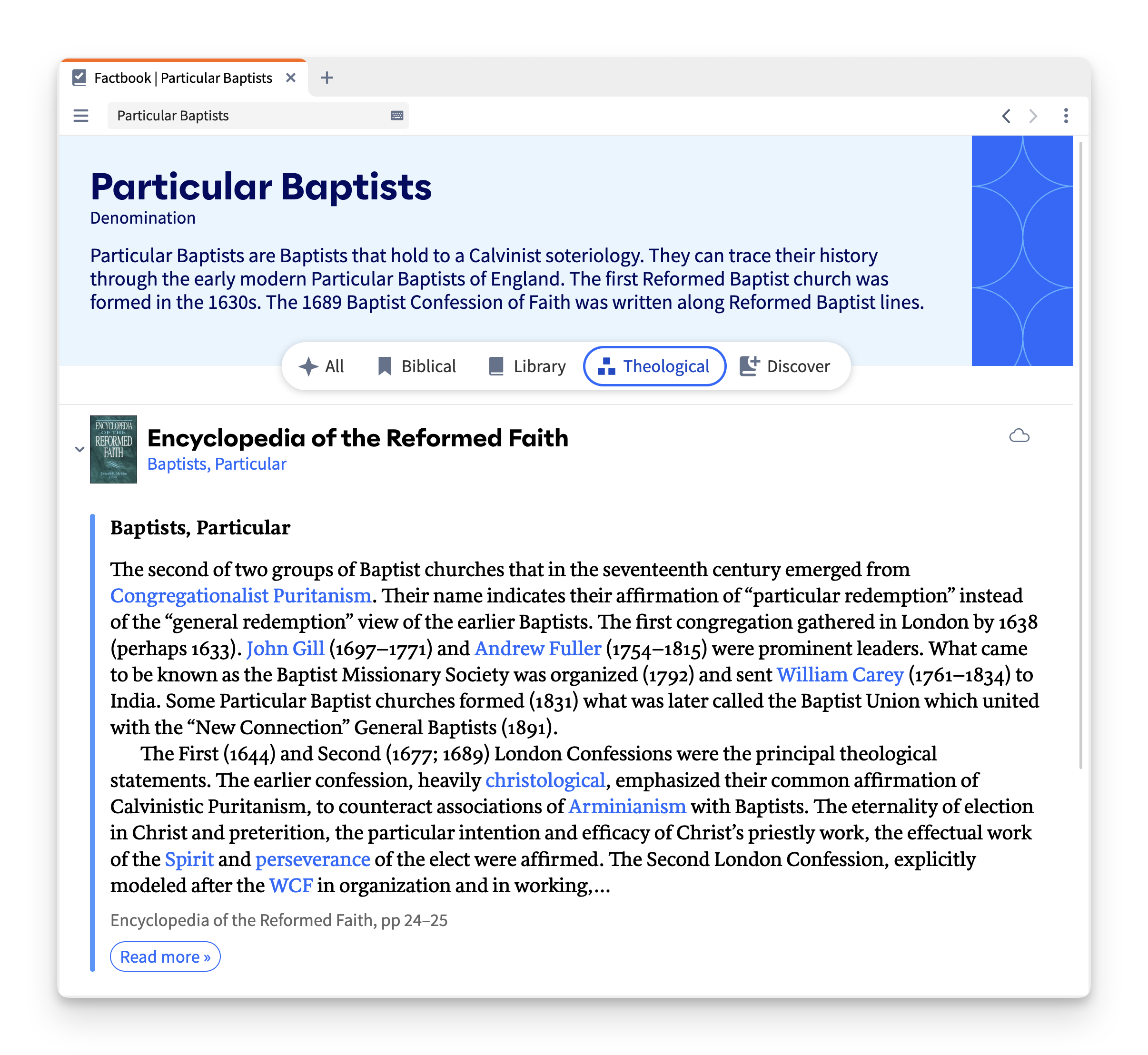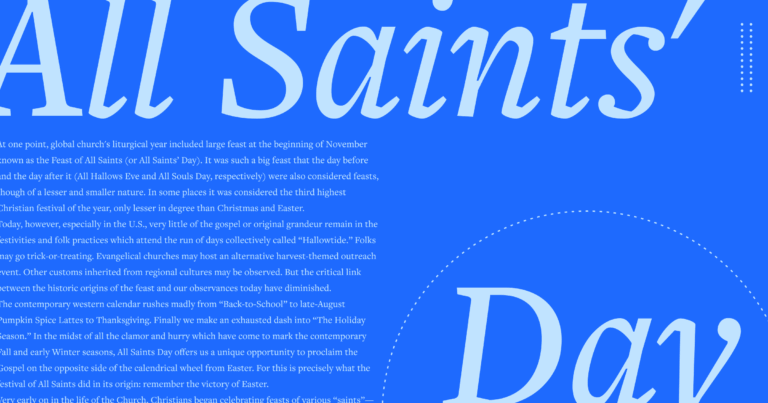From their origins as a Puritan sect in seventeenth-century England, Baptists have become a global force for the Christian faith. They have especially played a significant role in the last four hundred years in the history of anglophone Christianity. Their origins in Puritanism gave them a deep-seated love for the Bible that issued in a logocentric spirituality focused particularly upon preaching.
At the same time, their passion for individual religious liberty put them at odds with most of their Puritan contemporaries, whose ecclesiology was still that of the medieval church-state union. This individualism of the Baptist movement came to expression in not only what came to be called “soul liberty” in the nineteenth century, but also in an ardent concern for the autonomy of the local church.
Yet conflicts within the Baptist tradition have stemmed from these emphases. Clashes over biblical interpretation and an austere individualism that sat well with the cultural direction of Western society in the past four centuries led to a fissiparousness among many Baptist groups.
In this article, we’ll survey the most prominent Baptists groups in the anglophone world.
Table of contents
American Baptists
Baptists in the American South
By the twentieth century, the largest body of English-speaking Baptists was in the heartland of the American South; namely, the Southern Baptist Convention (SBC). Born in debates about the legitimacy of slavery in the antebellum South, by the 1930s the SBC was securely established as the largest Protestant denomination in America.
At the beginning of the second millennium, the SBC claimed to have more than 16.3 million members in 44,000 churches throughout the United States. One internal study by the SBC, however, revealed that on average only 35 percent of the membership regularly attended their church’s primary worship meetings.
The “Cooperative Program,” founded in 1925, has been critical to the funding of Southern Baptism’s advance during this era, and through it Southern Baptists have supported thousands of missionaries in the United States and worldwide. They fielded over ten thousand missionaries in 2005.
From 1954 to 1979, the SBC began to re-envision itself, largely ignoring its nineteenth-century Word-centered ethos. Being Baptist was viewed primarily through the prism of the priesthood of the believer and individual soul competency, with the basic understanding that being Baptist means freedom. Under this umbrella a person could read the Bible for himself or herself, influenced by higher critical conclusions while celebrating their personal experience.
Responding to this development was what has come to be called the Conservative Resurgence. This renewal movement can be dated from the summer of 1979, when Rev. Adrian Rogers (1931–2005), pastor of Bellevue Baptist Church in Memphis, was elected convention president in Houston, Texas. Galvanized by a clarion call for a commitment to the inerrancy of Holy Scripture, conservatives in the SBC sought to reclaim the denomination. In order to reverse the theological directions of the so-called moderates in the SBC, conservatives not only appealed to various nineteenth-century forebears, but also the work of Northern Evangelical Baptists like Carl F. H. Henry (1913–2003) and The Chicago Statement on Biblical Inerrancy (1978). Key figures within this Conservative Resurgence, which led to the exiting of the moderate faction within the SBC by the early 2000s, were Paige Patterson, David Dockery, and R. Albert Mohler, all of whom have served as presidents of Southern Baptist seminaries.
This controversy within the SBC revealed the fault lines of theological divergence within the SBC. The reason they lay hidden for so long was the pragmatic drift of the SBC between the 1930s and 1970s.
The six Southern Baptist seminaries help us register the extent of Baptist influence in American Protestantism: 19 percent of theological students in the United States go to one of these seminaries.

Baptists in the American North
Baptists in the Northern United States have a quite different history. After their separation from the Southern Baptists in the mid-1840s, they failed to develop denominational bonds until the first decade of the twentieth century.
Within two decades, the Northern Baptist Convention was rent by battles over the inerrancy and inspiration of the Bible, the divinity of the person of Christ, his virgin birth, and his resurrection, as well as how to respond to cultural challenges, such as Darwinism.
The Northern Baptists experienced two major schisms. In 1925, the body of churches that became known as the General Association of Regular Baptist Churches (GARBC) separated from the Northern Convention. Two decades later, in 1947, the Conservative Baptist Association of America, now Venture Church Network, was formed. Today, the GARBC has around 1,400 churches in its organization, while the Venture Church Network numbers around 1,200 congregations.
The American Baptist Convention USA (the former Northern Baptist Convention), however, remains one of the largest Baptist bodies in America with close to five thousand churches. This Baptist body is marked by significant theological diversity.
Black American Baptists
The other major body of Baptists in America are the Black Baptist conventions. The National Baptist Convention, USA, Inc. has some 7.5 million members in over 31,000 congregations. It was founded in 1880.
With the rise of the civil rights movement in the 1950s, it experienced a split in 1961, when the Progressive National Baptist Convention was formed. Martin Luther King Jr. (1929–1968) was a member of this latter body of churches.
Other American Baptists
Smaller bodies of Baptist churches include:
- The North American Baptist Conference, with roots in nineteenth-century German Baptist immigrants.
- Converge (once known as the Baptist General Conference), which grew out of Swedish Pietism (a key figure in this body of churches is John Piper).
- The Reformed Baptists, who date from the renewal of interest in Calvinism among Baptists and evangelicals in the 1950s and 1960s. Key leaders among the Reformed Baptists are Albert Martin and Walter Chantry (1937–2022). Significant differences between Martin and Chantry led to a separation and a divisiveness that has been all too common in the Reformed Baptist movement in America.

Use Logos’s Factbook to launch your own studies on Baptists. Get a free trial today!
Canadian Baptists
Baptists in the Maritime provinces
The Maritimes are the only area of Canada where Baptists have been a major Protestant denomination. In 2011, Baptists were the largest body of Protestants in New Brunswick, for example: numbering over seventy thousand. The majority of these Baptists, along with those in Nova Scotia, Newfoundland, and Prince Edward Island—some 450 churches—belong to the Canadian Baptists of Atlantic Canada (CABC).
Baptists in Central Canada
Baptists in Central Canada (Ontario and Quebec) are largely divided into two major groups. The Canadian Baptists of Ontario and Quebec (CBOQ) has some three hundred churches and an evangelical seminary, McMaster Divinity College. The Fellowship of Evangelical Baptist Churches in Canada (FEBC) has roughly the same number of churches.
The division between these two Baptist groups goes back to battles over liberalism at McMaster University in the mid-1920s, which were identical to the battles in the Northern Baptist Convention. Led by Thomas Todhunter Shields (1873–1955), the Fundamentalist Baptists exited what came to be called the “old Convention” and eventually formed the FEBC in 1953. The Maritime Baptists, largely conservative in their theological orientation in the 1920s, were spared this battle over liberalism.
Francophone Baptist churches
One noteworthy aspect of Baptist history in Central Canada is the real measure of revival that Baptists in Quebec knew during the 1970s and 1980s. In the space of those two decades, some twenty Francophone Baptist churches—planted mostly by English-speaking missionaries from the 1930s onwards—grew fourfold to about eighty churches.
One key figure who grew up in the Quebec Baptist world is the New Testament scholar D. A. Carson.
Baptists in Western Canada
Baptists in Western Canada also experienced theological conflict over liberal theology during the 1920s. This conflict was especially centered upon liberal teaching at Brandon College in Manitoba, the main theological college for the Baptist Union of Western Canada (now the Canadian Baptists of Western Canada, CBWC). Conservative Baptists in British Columbia, roughly a third of the Baptists churches in this province, responded to this conflict by forming a separate convention—the Convention of Regular Baptist Churches of British Columbia. This body of churches joined with the FEBC in Ontario and Quebec in 1965. Today, the FEBC has well over five hundred churches throughout Canada, while the CABC, CBOQ, and the CBWC account for some nine hundred churches.
The North American Baptist Conference also has a notable presence in Canada along with Taylor Seminary, its seminary in Edmonton, Alberta.
Calvinistic Baptists in Canada
As a result of the renewed interest in Reformed theology in the 1960s, a small body of Calvinistic Baptist Churches, the Sovereign Grace Fellowship, was formed in 1983. The key figure behind the movement till his death in 1997 was William Payne (1938–1997) from Liverpool, England.

British & Irish Baptists
In the original homeland of the Baptist movement, Baptist bodies of churches continue to flourish.
English & Welsh Baptists
The Downgrade Controversy of the 1880s led to the separation of the Metropolitan Tabernacle under the leadership of C. H. Spurgeon (1834–1892) from the Baptist Union of Great Britain. Since then, the Baptist Union—now Baptists Together—has experienced a significant degree of theological declension during the twentieth century. A low point might well be the pronouncement of Michael Taylor, the principal of Northern Baptist College, in 1970 that Jesus cannot be described unequivocally as God. A key measure of theological recovery in the Union has come through two channels: the charismatic movement and the renewed interest in Reformed theology that has been evident in North America, as well. In the latter, the teaching of Martyn Lloyd Jones (1899–1981) was a key factor. Baptists Together have around 1,800 churches in England and Wales with over 100,000 members.
Other key groups of Baptists in the British Isles include the Grace Baptist Assembly, which was founded in 1980 and consists of four bodies: the Association of Grace Baptist Churches (East Anglia), the Association of Grace Baptist Churches (East Midlands), the Association of Grace Baptist Churches (South East), and the Fellowship of Northern Particular Baptist Churches. These churches are the heirs of various nineteenth-century Calvinistic Baptist bodies that observed closed communion and were deeply suspicious of the theology of Andrew Fuller (1754–1815) and his free offer of the gospel.
The Grace Assembly, however, would not be hostile to Fuller’s theology. A key leader in this body of churches was Erroll Hulse (1931–2017), originally from South Africa. Deeply influenced by Martyn Lloyd-Jones, Hulse had a worldwide ministry that drew together Reformed Baptists around the world.
The one group of Baptist churches in England that remains opposed to Fullerism is the Gospel Standard Churches, among whom B. A. Ramsbottom (1929–2023) was an outstanding leader.
Baptists in Scotland
In Scotland, the Baptist Union of Scotland has about 150 churches with close to ten thousand members. Like the Baptist Union in England and Wales, the Scottish Baptist Union had theological issues in the mid-twentieth century, which led churches like Charlotte Chapel in Edinburgh to leave the Union in 1955. On the other hand, Broughty Ferry Baptist Church in Dundee, where Brian Talbot is the pastor, is a good example of a faithful Christ-centered congregation in the Scottish Baptist Union.
Baptists in Ireland
The Irish Baptist Churches had stood with C. H. Spurgeon in the Downgrade Controversy, largely because of Hugh Dunlop Brown (1858–1918), who was a friend of Spurgeon. Brown was the pastor of Harcourt Street Baptist Church in Dublin and founded Irish Baptist College next to the church in 1892. Irish Baptist College is now based in Moira, County Down, and has played a central role in the ongoing gospel fidelity of the Irish Baptist churches.
As of 2023, the Association of Baptist Churches in Ireland has 118 congregations with 8,500 members. Most of the churches are located in Northern Ireland. But what has been tremendously encouraging has been striking Baptist growth in the Republic of Ireland, especially in Cork. In the late 1980s, Cork Baptist Church—whose roots go back to the 1640s, making it one of the oldest Baptist churches in the world—launched a church-planting initiative. This venture, now known as the Cork/Kerry project, has seen the planting of seven new Baptist congregations along with a small theological institute, Munster Bible College. Teachers at this college have included not only Irish Baptists, but Baptists from Canada, the United States, and England. While fractiousness has marked Baptist life in the twentieth and twenty-first centuries—some of it warranted, much of it not—the Cork/Kerry project is a great example of how Baptists have also worked together for the advancement of the gospel and the glory of God.
Conclusion
As a central heir of the Reformation and Puritanism, Baptists have historically been a Bible-centered people. They have also played a key role in upholding religious liberty and the independence of the church from state control, issues that are still vital ones in today’s world.
Michael Haykin’s recommended resources
- B. R. White, The English Baptists of the Seventeenth Century (1996).
- Raymond Brown, The English Baptists of the Eighteenth Century (1986).
- J. H. Y. Briggs, The English Baptists of the Nineteenth Century (1994).
- T. M. Bassett, The Welsh Baptists (1977).
- J. H. Y. Briggs, ed. A Dictionary of European Baptist Life and Thought (2009).
- Brian Talbot, Building on a Common Foundation: The Baptist Union of Scotland 1869–2019 (2019).
Baptists Through the Centuries: A History of a Global People
Save $1.80 (5%)
Price: $34.19
-->Regular price: $35.99
The Baptist Story: From English Sect to Global Movement
Save $10.15 (35%)
Price: $18.84
-->Regular price: $28.99
Baptists in Canada: Their History and Polity
Save $0.80 (5%)
Price: $15.15
-->Regular price: $15.95
The Baptists: Key People Involved in Forming a Baptist Identity
Save $3.60 (5%)
Price: $68.39
-->Regular price: $71.99
Related articles
- What Do Baptists Believe? An Intro to Baptist Theology & Roots
- Baptist Bible Study: History, Beliefs, Major Figures, and Resources
- What Is a Reformed Baptist? Beliefs, History & Key Leaders to Know
- 40 Best-Selling Books for Baptists
- The Definitive Guide to Christian Denominations


 3 weeks ago
39
3 weeks ago
39








 English (US) ·
English (US) ·